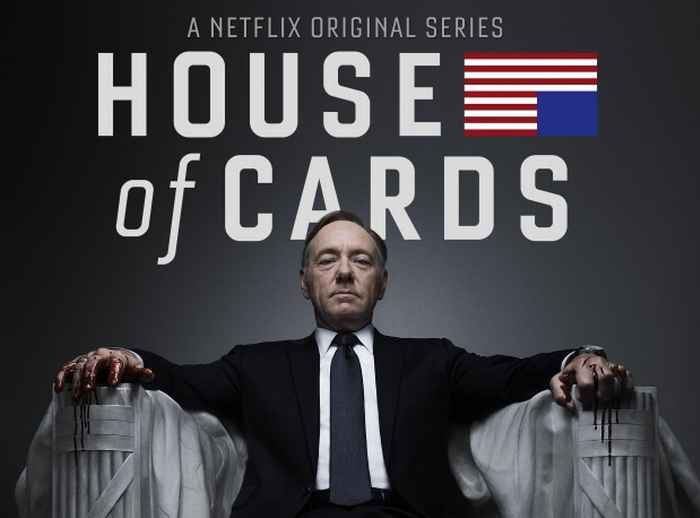
The study programme
The programme
Entrepreneurship and Management in the Creative Industries is one of the tracks of the Master's Business Administration. During your Master's you will follow 5 general courses and 3 track-specific courses. You will finish with a thesis. If you have a fundamental drive to challenge the corporate environment, you can participate in one of our Honours programmes.
-
Guest lectures and teamwork
During this Master’s you will dive into diverse business fields, ranging from entrepreneurship and innovation to marketing, strategy and organisational design. Expect inspiring guest lecturers from thought leaders representing the high-arts, like the Van Gogh museum, the Concertgebouw orchestra and the Dutch National Opera and Ballet. As well as start-ups, crowdfunding platforms and creative organisations such as RTL/Videoland, Armada Music, Amsterdam Dance Event and fashion conglomerates like Karl Lagerfeld and Tommy Hilfiger. You will team up with fellow students to work on interesting business cases and present them in class.
-
Ethics and the Future of BusinessPeriod 14
The purpose of this course is to explore the trends, core concepts, theories, and approaches of business ethics and corporate sustainability. The course is divided into a general part and a track-specific part.
-
Theories of Entrepreneurship and Management in the Creative IndustriesPeriod 16
Obtain an overview of differences and similarities between the creative industries and other sectors by studying different areas in business administration, ranging from strategic management to marketing and from organisation theory to innovation management. Themes include: extremely long versus extremely short product life cycles, extreme market uncertainty with high flops to hits ratios and the role of endorsement and word of mouth.
-
Business Seminar and Managerial SkillsPeriod 1Period 2Period 34
To prepare you for your professional career, this course is a combination of a series of corporate guest lecturers in Royal Theatre Carré and an offering of professional skills training e.g. Presentation Skills, Programming with Python and more.
-
Managerial SkillsPeriod 1Period 2Period 3—
-
Cultural Entrepreneurship and InnovationPeriod 26
You will be exposed to a wide range of highly relevant issues ranging from how creative entrepreneurs convince others to help finance their ventures, to innovation and leadership in creative organisations. Emphasis is on gaining a fine-grained understanding of the effects of market signals on performance differentials, big data and the art industry, and the impact of art policy and subsidies on cultural entrepreneurship, to name a few.
-
Strategic Management and Marketing Theory in the Creative IndustriesPeriod 26
In this course, you will explore the building blocks of strategic management and marketing theory (competition, market, organisation, innovation and strategy), discuss the meaning of these fundamental concepts for the creative industries and make clear how different viewpoints can have significant implications on theoretical understanding and management.
-
Thesis Proposal Entrepreneurship and Management in the Creative IndustriesPeriod 34
This course is meant to support you in writing you research proposal for you Master's thesis. During the course, you will learn how to change a general topic into a specific research proposal.
-
Business Seminar and Professional SkillsPeriod 4Period 52
To prepare you for your professional career, this course is a combination of a series of corporate guest lecturers in Royal Theatre Carré and an offering of professional skills training e.g. Presentation Skills, Programming with Python and more.
-
Restricted-choice electives: Professional SkillsPeriod 4Period 5—
-
Restricted-choice electives: Methods-WorkshopsPeriod 42
-
Restricted-choice electives: Analysis-WorkshopPeriod 52
-
Restricted-choice electives: Business Lab ElectivesPeriod 4Period 512
In The Business Lab, you can choose from a wide selection of electives we call business labs. Each one is connected to a corporate partner. You will be challenged to solve real-world business issues, working in international teams and presenting your solution to the company.
-
Master's Thesis Entrepreneurship and Management in the Creative IndustriesPeriod 4Period 5Period 612
The Master’s thesis is the final requirement for your graduation. It is your chance to dive deep into a topic that you are enthusiastic about. A professor in your field of choice (track) will supervise and support you in writing your thesis. Upon graduation, you will be awarded the title Master of Science (MSc).
Honours programmes
Highly motivated students can participate in the Master's Business Administration Honours programmes Sustainability or Data Driven Management. These challenging programmes are a great chance to stand out for future employers.

'I was introduced to actual and relevant theories I still use today'Joshua Picauly - Student EMCI track Read about Joshua's experiences with this Master's

Simply analysing vast amounts of data does not ensure competitive success. For instance, both Amazon and Netflix use big data to capture customer preferences. However, only a few of their products become hits. Learn what differentiates successful competitive strategies from the rest by applying contemporary theories used in fields like marketing, management and digital innovation. Bonus: discover why Netflix’s approach to using big data to understand customer preferences led to the hit series House of Cards, while Amazon’s series called Alpha House was a flop.

The track offers a strong academic base enriched with real-life business cases.Charlotte Kammerer - Student EMCI track Read about Charlotte's experiences with this Master's
-
When do I need to select a specialisation track?
A specialisation track must be chosen when applying for the Master’s programme. However, track modifications are still possible until late October. The criteria for all tracks are identical and do not impact the likelihood of being accepted into the programme.
-
How many students are in the programme?
Our Master’s programme is selective and admits between 60-120 students per specialisation track.
-
What are the weekly contact hours?
Most courses have one 2-3 hour lecture and one 2-hour tutorial per week. Generally students take 3 courses at a time, so count on about 12-15 contact hours per week.
-
Will all lectures be held in person, or will there be options for online attendance?
Our preference is for in-person lectures. Certain sessions may be pre-recorded or follow a hybrid format. This entails preparing for Question and Answer (Q&A) sessions through video clips and readings, with subsequent discussions during meetings.
-
Is attendance compulsory for lectures, tutorials, and other sessions?
Attendance is usually not compulsory for lectures, but commonly for tutorials and other sessions. Students greatly benefit from being present and engaging in discussions with both the instructor and their classmates.
-
What is the typical method of assessment for most courses?
The majority of courses have a final written on-site exam. Most courses have additional assessment methods, including oral presentations, developing research proposals, conducting experiments and writing up results. Finally, some courses grade active participation. This is reflected by attendance and activity in tutorials and online assignments.